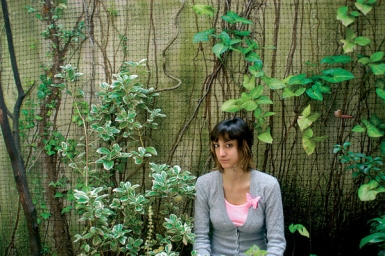A permanent smile accompanies the work of Paula Delgado. It is not as a manifestation of joy, let alone of complicity, and it is definitely far removed from any type of satisfaction. Similar to Alice’s cat, the artist’s works are, at first sight, innocent, playful, and familiar, but they increasingly intrigue the viewer, as they return to the interlocutor—under the guise of answers to the questions that present themselves—his/her own reality, rearranged into strange molds.
Immersed in “a cliché-filled world,” as she described in an interview to the Dossier, Delgado bases her investigations in gender relations. Discordant tones and, on the other end, the melodies regarded as perfect in the symphony of everyday life comprise her favorite raw material. Ostensive fictionalization of current cultural guidelines is her main working tool.
The artist features in the series (A)Pareço, logo existo [I look, therefore I am] of the FF>>Dossier, alongside three other Uruguayan authors who also use simulation, seduction by image, and manipulation of codes and media tactics as tools or foundations for their work. Delgado’s critique of established models of behavior, recipes for success, and “truths” that are taken for granted becomes apparent in such distinct proposals as Candy, Queen of Karaoke—in which the self-construction of an aspiring star turns out amateurish and depressing—, Karina, which materializes a female reaction to sexual harassment, and Cómo sos tan lindo, in which regular men turned into “sex objects” show themselves fragile, insecure, and embarrassed.
In all these works, as noted by art critic Enrique Aguerre in an Essay written for this Dossier, the author “criticizes a state of affairs that must be revised and changed with no delay.”
Further info on this artist available at the collection
